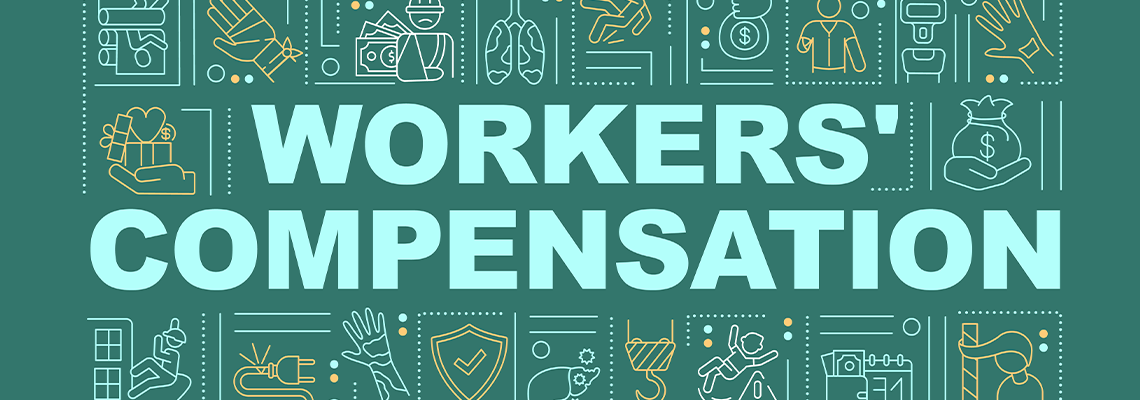Losing a loved one can raise urgent legal questions at the same time you’re trying to manage practical realities. One of the most common points of confusion is who actually has the legal authority to file a wrongful death lawsuit, especially when several family members are grieving and want answers.

Workers’ Compensation & Third-Party Claims
Workplace accidents can destroy your life and threaten your livelihood. If that happens, you should know your rights and options regarding workers’ compensation and third-party claims. We’re here with valuable insights and practical legal advice, so you can make informed decisions about your case.
Understanding Workers’ Compensation
Workers’ compensation is a form of insurance that provides wage replacement and medical benefits to employees injured in the workplace. It ensures that workers receive necessary medical care and financial support without needing to prove fault. The laws governing workers’ compensation vary by state, but it is mandatory for most employers to carry it.
Workers’ compensation covers a variety of workplace accidents, including slip and falls, repetitive motion injuries, machinery accidents, and more. Injuries can range from minor cuts and bruises to serious long-term conditions.
Key Benefits of Workers’ Compensation
Workers' compensation covers medical expenses related to the injury, including doctor visits, surgeries, medications, and rehabilitation services. Workers also receive a portion of their lost wages during the recovery period. This financial support helps you maintain financial stability while focusing on recovery.
Workers’ compensation can also cover permanent impairments or disabilities resulting from the injury. This includes physical limitations, scarring, or even loss of limbs. In such cases, workers may receive additional compensation for their long-term needs and future employment prospects.
The No-Fault System
Under the no-fault system, employees are entitled to benefits regardless of who was at fault for the accident. However, this also means that workers cannot sue their employers for negligence in most cases.
This system speeds up the process of receiving compensation and reduces the need for lengthy legal battles. It also gives swift and certain relief to injured workers while avoiding adversarial litigation and maintaining employer-employee relationships.
The Employer’s Responsibility
Employers are legally required to carry workers' compensation insurance. Failure to provide workers' compensation coverage can result in legal consequences for the employer.
Employers must post notices about workers' compensation rights and processes in conspicuous areas and report workplace injuries to their insurance provider in a timely manner so that claims are processed efficiently.
Understanding Third-Party Claims
While workers' compensation covers injuries sustained on the job, there are instances where a third party may be responsible for the accident. In such cases, a third-party claim can be filed in addition to the workers' compensation claim.
A third-party claim seeks compensation from someone other than the employer or a co-worker. This could be a contractor, manufacturer, or property owner whose negligence contributed to the accident.
It can provide additional compensation beyond what workers' compensation offers. This includes damages for pain and suffering, loss of consortium, and other non-economic losses that workers' compensation does not cover.
Third-party claims can arise in various situations. For instance, if an employee is injured due to a defective piece of equipment, the manufacturer of that equipment could be held liable. Similarly, if a delivery driver is involved in a car accident caused by another driver’s negligence, a third-party claim can be filed against the at-fault driver.
Understanding the Legal System
The legalities surrounding workers' compensation and third-party claims can be complicated.
The Role of an Attorney
An experienced workers' comp attorney can help you determine whether you have a viable third-party claim in addition to your workers' compensation claim. They will gather evidence, negotiate with insurance companies, and represent you in court if necessary. They can also guide you through the paperwork and meet submission deadlines.
Building a Strong Case
A strong case will have supporting evidence, such as medical records, accident reports, and witness statements.
You should document the injury process, from initial treatment to any ongoing rehabilitation, to demonstrate the impact of the injury on your daily life and capabilities.
Expert testimonies from medical professionals or industry specialists can fortify your claim with professional insights into the accident and its consequences.
Workers’ Compensation and Third-Party Claims in Virginia
Virginia has several laws and regulations that govern workers' compensation and third-party claims. Understanding them is important for anyone seeking compensation for workplace injuries in the state.
Workers’ Compensation in Virginia
In Virginia, employers with three or more employees are required to carry workers' compensation insurance. Employees must report their injury to their employer within 30 days and file a claim with the Virginia Workers' Compensation Commission within two years of the injury date.
Third-Party Claims in Virginia
Virginia allows injured workers to file third-party claims in addition to their workers' compensation claims. These claims must be filed within two years of the injury date.
The Virginia Workers' Compensation Commission
The Virginia Workers' Compensation Commission oversees workers' compensation claims in the state. It provides resources and assistance to injured workers and ensures that their claims are handled fairly and efficiently.
Appeals Process
If a workers' compensation claim is denied, the worker has the right to appeal the decision. The appeal must be filed with the Virginia Workers' Compensation Commission within 30 days of receiving the decision. Additional evidence or documentation may be required to support your case during the appeals process.
Penalties for Non-Compliance
Employers in Virginia who fail to carry the required workers' compensation insurance may face penalties such as fines, criminal charges, and liability for paying full compensation to injured workers out of pocket. Compliance can safeguard workers' rights and protect employers from severe repercussions.
Legal Help Is Here When You Need It
Our attorney, Stephen Forbes, has been advocating for Virginians in injury and criminal defense cases since 1982 and offers reliable counsel and advocacy with extensive trial and negotiation experience, always aiming for the best possible results. We are committed to empowering clients with the knowledge to make informed decisions and stands by them every step of the way. If you're in Hampton Roads, Hampton, Newport News, Poquoson and York Counties, or Williamsburg, call us at the Forbes Law Firm in Hampton Roads, Virginia, for legal help.




